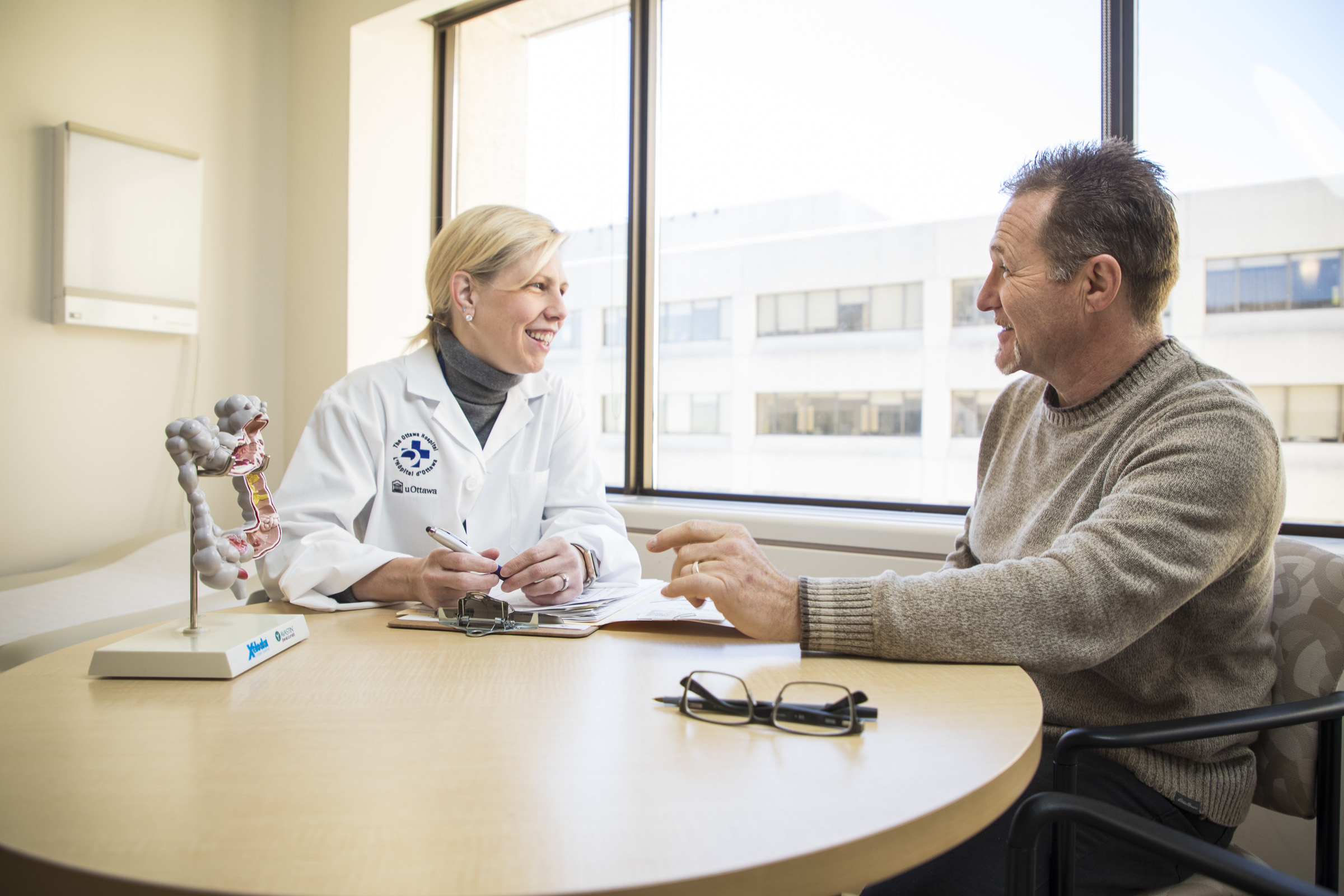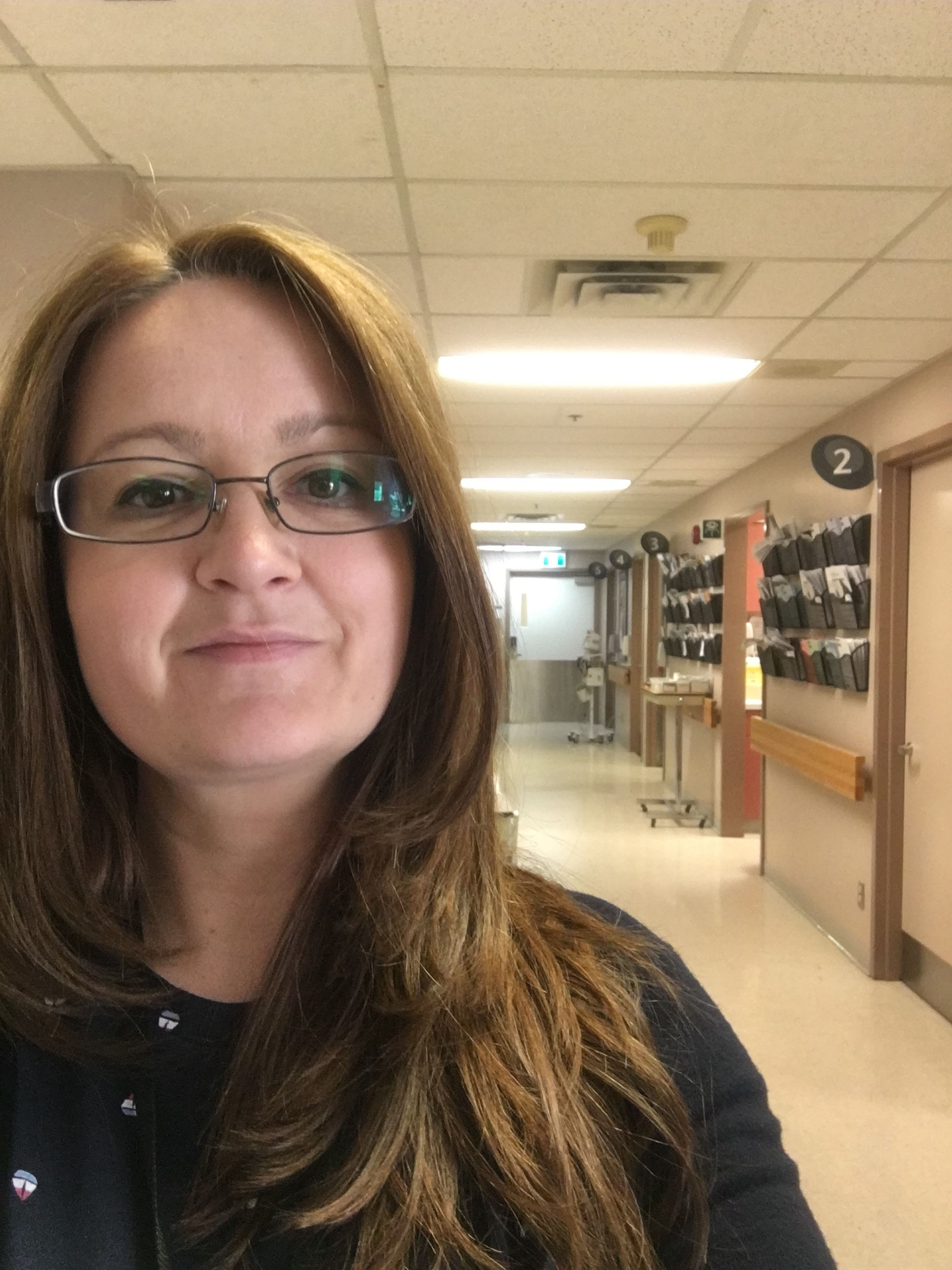 "Streamlining the process of tissue consenting and collecting will ensure that all patients are given the opportunity to participate in research, while protecting their privacy," said Dr. Rebecca Auer (left), Director of Cancer Research at The Ottawa Hospital.The Ottawa Hospital is rolling out “Global Tissue Consenting and Collecting” (GTC). As part of the operative consent process, surgeons will ask all patients if they agree to have their surplus tissue from the OR used for research. This new streamlined process will accelerate our ability to make new discoveries and find better treatments for various diseases.
"Streamlining the process of tissue consenting and collecting will ensure that all patients are given the opportunity to participate in research, while protecting their privacy," said Dr. Rebecca Auer (left), Director of Cancer Research at The Ottawa Hospital.The Ottawa Hospital is rolling out “Global Tissue Consenting and Collecting” (GTC). As part of the operative consent process, surgeons will ask all patients if they agree to have their surplus tissue from the OR used for research. This new streamlined process will accelerate our ability to make new discoveries and find better treatments for various diseases.
On October 1, 2019, the “purple” Operative Consent will be replaced by an updated Operative Consent that includes a section asking the patient if they are willing to have excess tissue removed from the OR to be used for research. Working under an umbrella Research Ethics Board (REB) protocol, a GTC Working Group will manage the collection and distribution of this tissue and ensure that personal health information is protected.
“So many stakeholders have been engaged and supportive of this initiative,” says Dr. Rebecca Auer, Director of Cancer Research. “We are so excited to be able to offer this innovative service to our local researchers at The Ottawa Hospital and the University of Ottawa. Streamlining the process of tissue consenting and collecting will ensure that all patients are given the opportunity to participate in research, while protecting their privacy.”
The program is managed by “Tissue Navigator” Edita Delic, a clinical research associate with a track record in tissue collection protocols and procedures for research.
What surgeons, nurses and clinical administration need to know? The operative consent still looks the same but will now be a legal-size document that includes checkboxes for the patient to initial, indicating if they are willing to participate in tissue collection for research. An information sheet is also provided to the patient, which includes contact information for the “Tissue Navigator” if they have additional questions. No changes will be made to how tissue will be transported from the OR to the pathology lab.
What do researchers need to know? Any researcher can make use of the GTC process, including current protocols which collect tissue. The collection  The program is managed by “Tissue Navigator” Edita Delic.program is not a biobank but will provide fresh tissue to researchers. The GTC is registered with the Canadian Tissue Repository Network (CTRN). If you are interested in obtaining tissue for research or have a currently enrolling tissue collection protocol, please contact Edita Delic, the TOH “Tissue Navigator” to find out how you can make use of this complimentary service.
The program is managed by “Tissue Navigator” Edita Delic.program is not a biobank but will provide fresh tissue to researchers. The GTC is registered with the Canadian Tissue Repository Network (CTRN). If you are interested in obtaining tissue for research or have a currently enrolling tissue collection protocol, please contact Edita Delic, the TOH “Tissue Navigator” to find out how you can make use of this complimentary service.
What do patient’s need to know? When a patient consents to GTC, only surplus tissue, not needed for diagnosis or to help with treatment decisions, will be used for research purposes. Any personal health information collected will be protected, as per the regulations of the Research Ethics Board. The patient’s treating surgeon may or may not be involved in the research conducted with the surplus tissue. Consent is completely voluntary, and patients are not required to participate.
